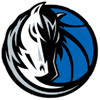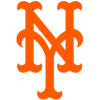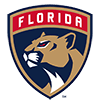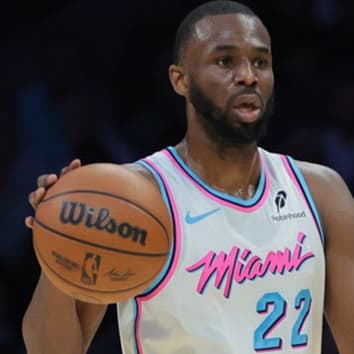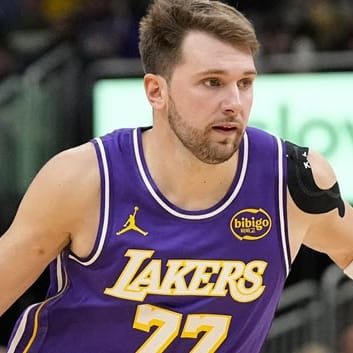Herbert Jones is awesome.
As a rookie, he forced his way into the starting lineup, despite having been drafted almost 20 picks behind teammate and fellow wing defender Trey Murphy just three months earlier. A former second-round pick, Jones has finished as a top-100 fantasy producer in each of his first three seasons. The much-hyped 2021 draft class has been as impressive as advertised, yet only two other members can boast such an accomplishment (Evan Mobley and Scottie Barnes).
How does Jones maintain his lofty fantasy status? In part by ranking among the best thieves in the league. Nobody's idea of an All-Star, Jones' skills as a defensive specialist have skyrocketed him up the fantasy ranks.
Though Jones' steals rate dropped slightly last season, it was accompanied by an improvement in most other categories, and he still averaged a combined 2.2 stocks per game. With an ADP down near 100, Jones is a perfect choice to headline today's list of non-star, nine-category specialists to target: he's a near-lock to provide a profit that late in drafts.
Assists
Chris Paul, Spurs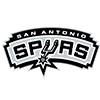
Assists hold a key strategic role in fantasy. They aren't the first category to effectively disappear from the draft board (that's points), and they aren't the scarcest (blocks). However, assists are the second-hardest category to find after the first few rounds, and they are the hardest to supplement through the waiver wire. That makes Paul an unusual draft-day gem – someone who could finish in the top
Herbert Jones is awesome.
As a rookie, he forced his way into the starting lineup, despite having been drafted almost 20 picks behind teammate and fellow wing defender Trey Murphy just three months earlier. A former second-round pick, Jones has finished as a top-100 fantasy producer in each of his first three seasons. The much-hyped 2021 draft class has been as impressive as advertised, yet only two other members can boast such an accomplishment (Evan Mobley and Scottie Barnes).
How does Jones maintain his lofty fantasy status? In part by ranking among the best thieves in the league. Nobody's idea of an All-Star, Jones' skills as a defensive specialist have skyrocketed him up the fantasy ranks.
Though Jones' steals rate dropped slightly last season, it was accompanied by an improvement in most other categories, and he still averaged a combined 2.2 stocks per game. With an ADP down near 100, Jones is a perfect choice to headline today's list of non-star, nine-category specialists to target: he's a near-lock to provide a profit that late in drafts.
Assists
Chris Paul, Spurs
Assists hold a key strategic role in fantasy. They aren't the first category to effectively disappear from the draft board (that's points), and they aren't the scarcest (blocks). However, assists are the second-hardest category to find after the first few rounds, and they are the hardest to supplement through the waiver wire. That makes Paul an unusual draft-day gem – someone who could finish in the top five in assists and yet is still available at pick 100. Paul is long past his prime. It's been three years since the 39-year-old made an All-Star game, but even during a disappointing 2023-24 campaign, he remained one of the best passers in the NBA. He was sixth in assists per minute and finished 15th in assists per game despite playing just 26.4 minutes. His minutes should increase while starting alongside Victor Wembanyama, and Paul will likely provide a big boost in steals, too.
Keyonte George, Jazz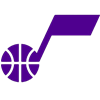
The national media (and the Jazz' extended rebuild) have made it easy to ignore the Jazz, but fantasy managers need to pay attention to George. The 2023 first-round pick is likely to start at PG all season after playing his way into the role midway through 2023-24. Through 44 starts, he averaged 5.2 assists – a solid haul for the 12th round of a fantasy draft, but nothing exceptional. At his best, however, he flashed the ability to dish far more than that. Through one five-game stretch, he got up to 8.8 per game (that would have been the fifth-most assists per game in the league if he had maintained it).
Blocks
Dereck Lively, Mavericks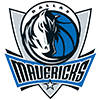
Lively's current ADP, 109 on Yahoo, is possibly the most ludicrous in all of fantasy basketball (and it's even worse on some other platforms). Simply put, even though he is only 20 years old and may not be a starter, Lively is the best big man on the Mavericks. Coach Jason Kidd showed us that he knew this when he played Lively more minutes than starter Daniel Gafford in the last five games of the Thunder series, the three games both centers were healthy during the Timberwolves series and throughout the Celtics series. Kidd trusted the rookie big man more than his starting veteran. Despite averaging just 23.5 minutes as a rookie, Lively managed 1.4 blocks and finished as a top-120 player. In 2024-25, Lively's minutes likely increase, and he continues to improve as a player, a combination that should accelerate his rise up the fantasy ranks.
Steals
Jalen Suggs, Magic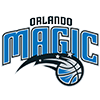
The Magic lost Markelle Fultz this offseason, and the (unusually believable) scuttlebutt is that Suggs is in line for a significantly increased role. Suggs' shooting improved steadily throughout last season, leading to an increase in minutes, all the way to 33.3 per game during the playoffs. He probably won't play quite that much, but he should provide a solid profit over his late-90s ADP. In addition to being one of the better thieves in the game, he's taking on more PG responsibilities and could provide a nice boost in assists.
Rebounds
Andre Drummond, 76ers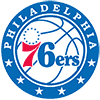
Personally, I'm drafting Joel Embiid fifth overall without a moment's hesitation. But Embiid's ADP is all the way down at eight right now, which means that most of the drafting universe disagrees with me. Well, if you're not drafting last season's best per-game fantasy producer in the top five, then either you're bad at thinking or you are afraid Embiid's going to miss too many games. Taking that a step further, that means most of you think he's going to miss too many games, and most of you should therefore strongly consider drafting his backup. Drummond was 2023-24's best per-minute rebounder. He'll likely have minimal value when Embiid is healthy, but he'll rank among the league leaders in rebounds when he starts.
Josh Hart, Knicks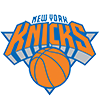
An effective way to boost your production in a category is with an out-of-position specialist. Derrick White's 1.2 blocks from the guard spot did more to help a team win that category than a center swatting the same amount since his value over a possible replacement was so much higher. Since rebounds come primarily from centers and power forwards, Hart's ability to record nearly 10 per game as a small forward is extra valuable (even better if you play on one of the platforms where he has SG eligibility). The Karl-Anthony Towns trade eliminated some of the Knicks' depth, which should help keep Harts' minutes elevated (along with coach Tom Thibodeau's allergy to substitutions). Hart also provides some out-of-position assists, especially for someone with a late ADP. Hart's current ADP is 118. He averaged 4.1 assists last season. That late in a draft, you're looking at point guards who average similar dimes.
Points
There is no such thing as a non-star points specialist. If they score a lot, they have at least some level of stardom.
Threes
In 2023-24, a player had to average 2.8 threes per game to rank in the top 25 in the category. For a player's three-point contributions to be the primary motivator for consideration, I set that as the bar. Only two players with ADPs outside the top 80 who strike me as likely to surpass that threshold: Anfernee Simons and Klay Thompson. While both players should boost threes greatly, I still view both as bad draft day values, so I don't want to recommend them in this article.
If you're not drafting a top-25ish three-point shooter, the best way to supplement your roster's three-point production is through the waiver wire. In the modern NBA, there is always someone who is widely available and on a hot streak. Sometimes we even get a situation like we saw last year, where Grayson Allen remained widely available all season despite putting up top-70 numbers. While his 2.7 threes were flashy, his other strengths (elite efficiency) were boring while his weakness (low scoring) was obvious. In either case, you'll add more threes through the waiver wire than by drafting Gary Trent or Max Strus and hoping they hold onto a large enough roll that you eventually trust them.










